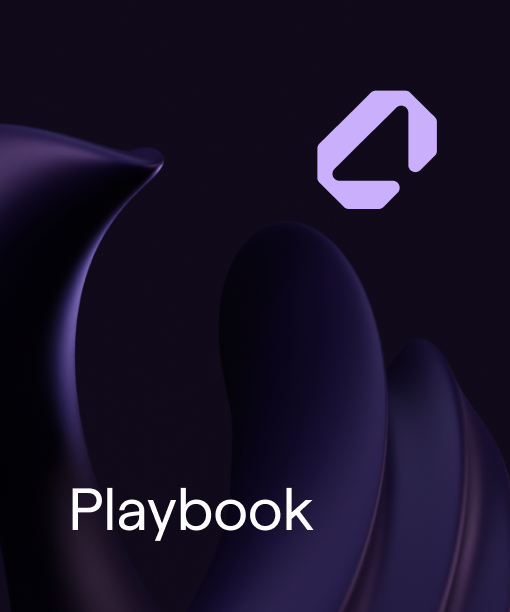
How APIs drive network effects
It's late at night, and you're craving a cheeseburger. You grab your phone, open a delivery app, and within minutes your order is confirmed—a hot, freshly made burger is on its way to your door. It feels effortless, almost magical. But behind that simple tap of a button lies an intricate web of technology, logistics, and collaboration that most people never think about.
Few people take time to think about the effort that went into making it:
- The farmer who raised the cattle and grew the lettuce, tomatoes, and onions that make up your burger.
- The chef at the restaurant who prepared and assembled the meal to order.
- The driver who picked up the food and navigated through traffic to deliver it to your doorstep.
- The APIs that connected the delivery app to the restaurant's system, processed your payment, tracked the driver's location in real time, and sent you notifications every step of the way.
APIs are the unsung champions of the modern digital experience. They are the invisible threads that stitch together the apps, platforms, and services we rely on every day. Without APIs, that late-night cheeseburger order would require a phone call, a trip to the restaurant, or—at best—a clunky website that couldn't talk to the kitchen, the payment processor, or the delivery driver.
Consider what happens when you place that order through an app like Wolt. The app sends your order to McDonald's kitchen system via an API. Another API processes your credit card payment through a payment gateway. A mapping API calculates the optimal route for the delivery driver. A notification API keeps you updated on the status of your order. Each of these interactions happens in milliseconds, seamlessly and invisibly, creating an experience so smooth you barely notice the complexity behind it.
It wasn't always this way. Not long ago, integrating two software systems was a monumental undertaking. Companies would spend months—sometimes years—building custom point-to-point integrations. A project to connect a retailer's inventory system to a supplier's order platform could easily take two years and consume millions in development costs. These integrations were brittle, expensive to maintain, and nearly impossible to scale. The idea of ordering a cheeseburger from your phone and having it arrive in 20 minutes would have seemed like science fiction, not because the food couldn't be made quickly, but because the systems couldn't talk to each other fast enough.
Today, APIs are revolutionizing the way businesses connect, communicate, and create value. They have transformed software integration from a painful, multi-year project into something that can happen in days or even hours. This transformation is driving three powerful trends:
- Creating Interoperability: APIs allow different systems, platforms, and applications to communicate with each other regardless of the underlying technology. This means a startup built on modern cloud infrastructure can seamlessly connect with a legacy enterprise system, unlocking collaboration that was previously impossible.
- Supporting Innovation: By exposing functionality through APIs, companies enable third-party developers to build new products and services on top of their platforms. This creates ecosystems of innovation where the platform provider benefits from every new application built, and developers gain access to powerful capabilities without having to build them from scratch.
- Facilitating Collaboration: APIs make it possible for organizations to share data, processes, and services with partners, customers, and even competitors in a controlled and secure way. This collaborative approach drives efficiency, reduces duplication of effort, and accelerates time-to-market for new offerings.
These trends converge to create something truly powerful: network effects. In a Two-Sided Marketplace, APIs serve as the bridge between producers and consumers. As more producers expose their services through APIs, the platform becomes more valuable to consumers. As more consumers adopt the platform, it attracts even more producers. This self-reinforcing cycle—the network effect—is the engine behind some of the most successful digital businesses in the world.
Think about it in terms of the cheeseburger example. Wolt's value grows every time a new restaurant joins the platform via API. More restaurants mean more choices for customers. More customers mean more orders for restaurants. More orders attract more delivery drivers. More drivers mean faster delivery times, which attract even more customers. Each new participant in the ecosystem strengthens the platform for everyone else.
Yet many organizations struggle to unlock these network effects because they treat API onboarding as a manual, high-touch process. They require new partners to go through lengthy "white glove" onboarding procedures—custom integrations, dedicated support calls, and weeks of back-and-forth before a single API call is made. This approach doesn't scale. It creates bottlenecks that slow down growth and prevent the network effects from taking hold.
The solution lies in API Portal Platforms that enable self-service onboarding. By providing developers and partners with the tools to discover, evaluate, and integrate APIs on their own terms—complete with documentation, sandbox environments, and automated key provisioning—organizations can remove friction from the onboarding process and accelerate the growth of their API ecosystems. This is exactly the approach that Apiable enables, helping companies transform their APIs from technical endpoints into thriving platforms that attract developers, drive adoption, and compound network effects over time.
